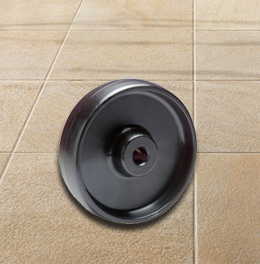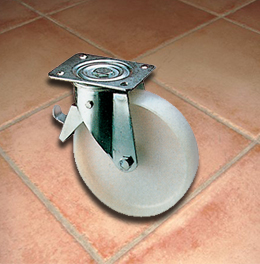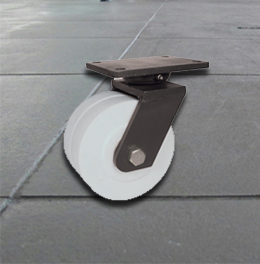
NYLON WHEELS FOR INDUSTRY
We usually think nylon as an elastic material, mainly used in the production of apparel. But nylon is much more: it is part of the family of polyamides and is obtained through a polymerization reaction, a transformation that can create solid matter suited for particular types of uses.
The nylon has some special characteristics, such as excellent resistance to breakage, leave no traces and do not stain the surfaces. In addition, nylon can boast a high resistance to abrasion and corrosion by many aggressive agents. However it is not a material suitable for contact with mineral acids, oxidizing agents, chlorinated hydrocarbons and saline solutions for heavy metals, and therefore we do not recommend the use of foundry industries.
The polyamide can be used at temperatures from -30° C to +80° C, with peaks up to 130 ° C for short period of time (thanks to a special polyamide). If the ambient temperature exceeds +35 ° C decreases, however, the resistance of materials to the large loads.
The nylon wheel provides a reduced pushing force and makes the objects to which it is applied particularly fluency, but has a fairly high noise level as poorly protection for the floor.
Nylon wheels are suitable for industrial environments and static uses. The optimal surfaces on which can operate are smooth and compact without the presence of obstacles during the path.
The most common types of use for nylon wheels are:


